It’s the perfect time of year to sloth around on the couch with a movie, and there are rom-coms aplenty for those who love a bit of lighthearted melodrama. What if you want to get into the festive feeling without the schmaltz? If you can’t stomach romantic comedies, your seasonal options might seem as rare as snow in Australia. But the reality is that Christmastime can be absurd, fraught, and even uncanny: why can’t Christmas movies be like that? For the grinches among us, acerbic humour and bitter nihilism feel more like the spirit of Christmas.
Read: Christmas TV specials can be awful: here are three of the best
If you’re dreading another year of family arguments, the age-old ‘does this count as a Christmas movie?’ is a nice low-stakes debate. Sink your teeth into these sharp-toothed flicks if you’re sick of saccharine cinema:
Die Hard (John McTiernan, 1988)
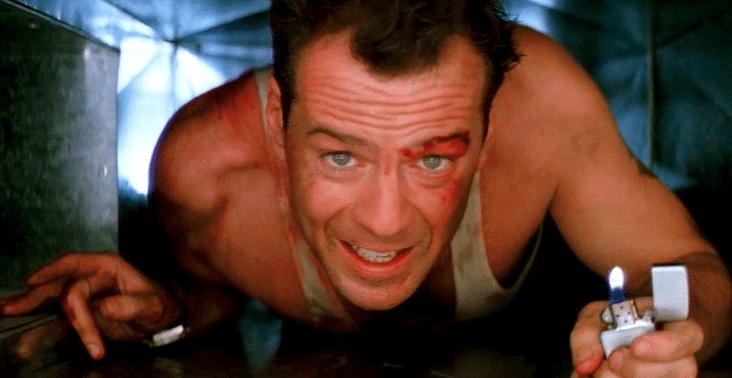
The classic ‘Christmas movie that might not count as a Christmas movie,’ Die Hard has carved out its place in the festive canon with the sheer stubbornness fitting of its protagonist. If you haven’t seen Die Hard, you’re in for a treat. If you have, you know it’s beloved for a reason.
Bruce Willis plays John McClane, a grizzled New York cop who travels to Los Angeles to visit his estranged wife. The skyscraper where she works is taken over by terrorists, and McClane is the only guy who can save the day. Willis is effortlessly charming. Alan Rickman and his posse of goons are all but twirling their moustaches. There are explosions and quote-able lines aplenty. It’s a Christmas movie insofar as it’s about strained family relationships, the greed that underpins belief systems, and the triumph of tradition.
Borrowing generously from the Western, Die Hard reinvented an exhausted genre. Instead of the frontier, his battle is vertically-oriented in a tower, and he wears a tank top instead of fringing. Still, he’s every bit the gunslinging hero protecting the innocent from bandits and shepherding in a new age of action cinema.
Go! (Doug Liman, 1999)
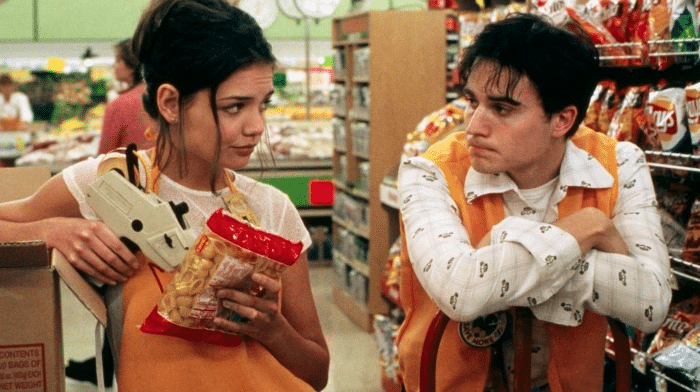
The dark horse of 1990s teen films, Go! has more in common with Pulp Fiction than Clueless. Presented as an anthology, it follows four interweaving narratives of 1990s party culture gone wrong. A shop clerk tries to sell fake ecstasy to cover her debts. Two closeted actors are trapped by a corrupt cop who’s busted them for possession. A night in Las Vegas escalates into murder and mayhem for a British tourist and his bros. A girl accidentally befriends a sinister drug dealer who holds her hostage.
It’s the kind of concept that could play out as a patronising anti-drugs message, but director Doug Liman combines genuine anxiety with absurd moments of humour with very effective results. The ensemble-driven plot emphasises a ripple-effect for small actions: when characters make bad decisions, you’re given so much context that it’s easy to understand how drastic the ramifications are going to be. Take a trip down memory lane with a cast of teen heartthrob stars and a Y2K-ready soundtrack.
Kiss Kiss Bang Bang (Shane Black, 2005)
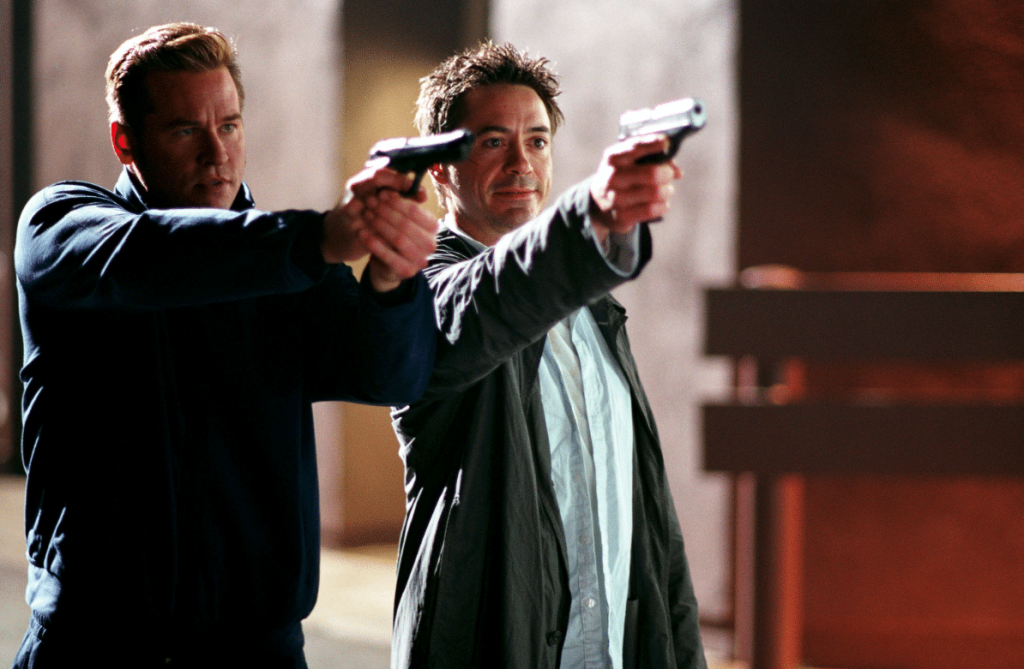
Everybody has their niche, and director Shane Black has found his in the oddly specific Christmas comedy-noir. Black’s films are cult hits renowned for snappy dialogue, odd couples, and convoluted crime capers.
Kiss Kiss Bang Bang takes place in Los Angeles, where the climate might look more like what we’re used to than most American films. Robert Downey Jr and Val Kilmer are perfectly matched as a petty thief and private investigator trying to unravel a murder quite literally taken from a pulp novel. The humour is razor-sharp, delivered with such pace and panache that you’re laughing before you realise how shocking some of the jokes are.
While Kiss Kiss Bang Bang isn’t as action-driven as Lethal Weapon or The Long Kiss Goodnight, the whodunit is so complex that you’ll find this the perfect antidote to brainless Christmas rom-coms.
In Bruges (Martin McDonagh, 2008)
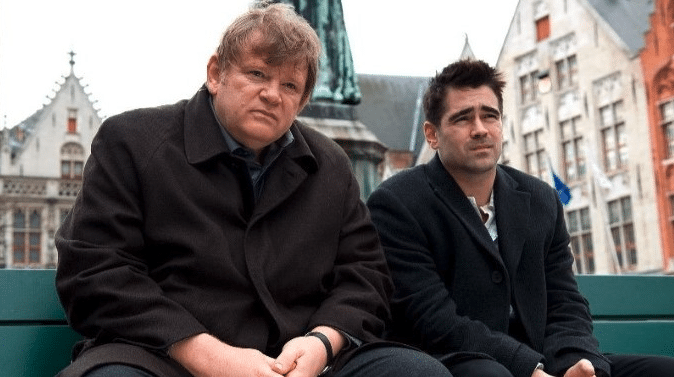
The feature-length debut of director Martin McDonagh, In Bruges redefined dark humour. Colin Farrell and Brendan Gleeson, McDonagh’s frequent collaborators, star as a pair of hitmen sent to the idyllic Belgian city of Bruges. It soon becomes clear that Ray (Farrell) is suicidal after an assassination gone horribly wrong, and his mentor Ken (Gleeson) is ordered by their boss (Ralph Fiennes) to put him out of his misery.
The picturesque architecture and absurd kitschiness of Bruges at Christmas contrast with Ray and Ken’s acerbic cynicism. Ray begins to wonder if Bruges is some sort of purgatory on earth. Old European Christmas traditions veer into the surprisingly sinister, and McDonagh embraces the almost phantasmagorical carnival of horrors that torture Ray. You’ll feel terrible for laughing at the sharp-tongued bickering between Farrell and Gleeson, but it won’t be the first time you’ve been caught up in the tribulations of December and said: ‘you have to laugh or you’ll cry.’
The unflinching cruelty of the story somehow manages to twist itself into a grim kind of optimism. Historically, yuletide once celebrated the glimmer of light that comes at the darkest time of year, and In Bruges captures that spirit perfectly.
Black Christmas (Sophia Takal, 2019)
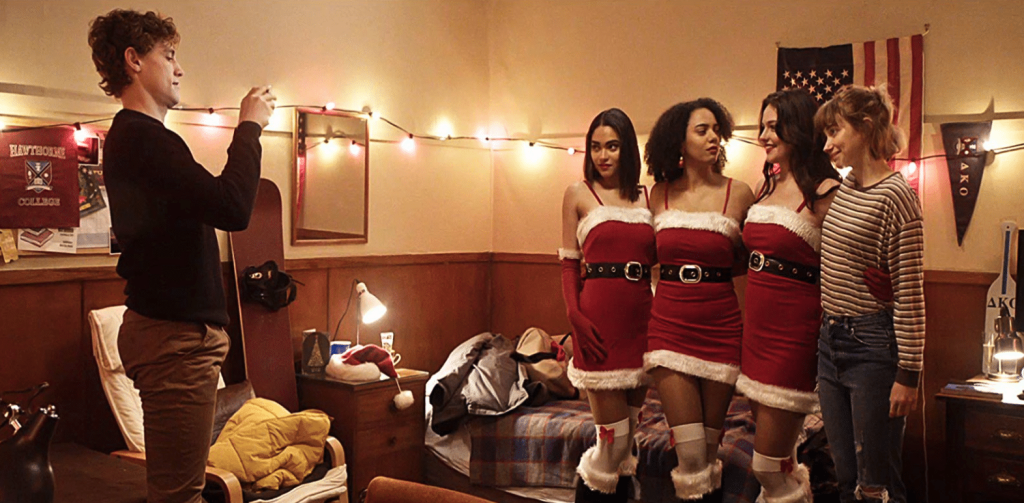
There are some great Christmas horror films: Gremlins, The Brain, Curse of the Cat People, and Krampus. The remake of the 1974 Black Christmas is a modern spin on a troubled set of tropes. Set in the #metoo era, Black Christmas manages to avoid many of the heavy-handed pitfalls of socially-conscious horror.
In Black Christmas, a group of sorority sisters try to fight the misogyny of their historic college. The friendships feel genuine and a fantastic cast makes the characters likeable: unlike most slashers, you’re not just waiting for gruesome deaths. But slashers and rape culture have something in common: it’s never just one guy.
Ultimately, our final girl uncovers a horrible truth at the heart of university culture: tradition can be a terrible thing.





